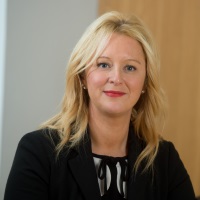Scottish Government
Civil Litigation (Expenses and Group Proceedings) (Scotland) Act 2018
At the beginning of the month Andrew Lothian, in his capacity as of Chair of FOIL Scotland, met with Ash Denham, the Minister for Community Safety and Civil Justice, along with the ABI and representatives of a number of insurers. The purpose of the meeting was to lay out the disparity between personal injury damages and expenses (costs) in low value injury claims in particular. Expenses now consume 63% of total spend in low value injury claims in Scotland. It is hoped this will be a platform for further discussion with civil servants and special advisers.
Damages (Investment Returns and Periodical Payments) (Scotland) Act 2019
The Costs and Funding Committee of the Scottish Civil Justice Committee met recently to consider draft rules relating to QOCS and awards of expenses. This was then shared with the Personal Injury Committee (PIC) who have agreed the draft rules in principle. While progress continues to be slow it does look as though QOCS will be introduced later this year.
Discount Rate Scotland
The Damages (Investment Returns and Periodical Payments) (Scotland) Bill received Royal Assent on 24 April. The Act will require a commencement order to take effect which will then be followed by a 90-day review period for the Government Actuary to determine the discount rate which is likely to take us to September/October.
In comparison, the discount rate review started in England and Wales on 19 March and must end by 5 August.
Our legal alert on the key issues can be viewed here.
Cases of Interest
Glasgow bin lorry crash – primary/secondary victim
Ms Weddle raised a court action for injuries sustained as a result of witnessing the bin lorry tragedy in 2014. She was a student who suffered post-traumatic stress disorder (PTSD) after being present at the scene of the accident. Ms Weddle had been looking at her phone when the collision between the bin lorry and the taxi happened, heard a loud bang, looked up and saw the two vehicles.
At no stage was either vehicle coming directly towards her and at no stage was she in danger of being struck. She therefore did not qualify as a primary victim and could not obtain damages for any psychiatric injury suffered by her in this capacity.
The law makes a distinction between primary and secondary victims and Ms Weddle was found by the court to fall into the latter category. It is this categorisation and restriction on the claims of secondary victims that is central to the dismissal of Ms Weddle’s claim.
There was no doubt that she had developed PTSD as a direct consequence of her presence at the scene of the incident. However, unless she could show a further connection to the incident she was unlikely to be successful in her claim. The test to ascertain whether a witness is a secondary victim first asks the question whether it was reasonably foreseeable that the incident would cause psychological harm to the pursuer.
Sheriff Kenneth McGowan held that the council could not have reasonably foreseen that the driving of their employee, Henry Clarke, would have caused the risk of physical injury to Ms Weddle.
This case provides excellent consideration of the tests for primary and secondary victims, focusing on the principles of the "remoteness test" laid down in Alcock & ors v Chief Constable of South Yorkshire relating to the 1989 Hillsborough football stadium disaster.
Dannielle Weddle v Glasgow City Council [2019] SC EDIN 42
Survivors of abuse awarded record payments from Church of Scotland
This month three siblings, a sister and two brothers, secured £1 million damages against the Church of Scotland for the sexual abuse they suffered at an Edinburgh children’s home. One of the three siblings, a woman who underwent an abortion after becoming pregnant as a result of the rape, was awarded £500,000, while the other two men were paid £250,000 each. Paedophile Ian Samson targeted the trio at Lord and Lady Polworth Children's House in Edinburgh, where he worked as a superintendent.
There are very few reported cases in Scotland that allow us to estimate the level of awards likely to be made in these sensitive claims. In this case expert evidence was heavily relied upon to show the court the impact this abuse had on the victims.
Counter Fraud Scotland
Our Counter Fraud team continues to grow with the recent addition this month of Robert Cranston.
Robert is an associate who has extensive experience in all areas of personal injury and medical negligence. He has appeared in sheriff courts throughout Scotland and has regularly been the instructing agent in Court of Session cases.

Professional Indemnity
The team in Scotland led by Alison Grant have published their spring edition of On Point which can be viewed here. This edition covers:
-
Prescription update & comment on Midlothian Council -v- Raeburn Drilling and Geotechnical Limited and Blyth & Blyth Consulting Engineers [2019] CSOH 29 (20 March 2019)
-
Arbitration
-
Construction Professional Indemnity Market
-
"What constitutes a final judgment?" - Siteman Painting & Decorating Services Limited v Simply Construct (UK) LLP [2019] SAC (Civ) 13
Scottish Abuse Claims
Scottish Government Redress Scheme
This year the Scottish Government established the Advance Payment Scheme to compensate survivors of childhood abuse in care with a terminal illness of aged 70 or over. This comes ahead of the planned legislation for a statutory redress scheme for survivors of abuse in care in Scotland, which the Scottish Government intends will pass its final Parliamentary stages before March 2021.
First Payments made - Five people who were the victims of abuse while living in care as children will each receive £10,000, under the scheme. There are many more applications awaiting a decision. The advance scheme has a potential £10m fund and will see successful applicants receiving a flat rate of £10,000.
Scottish Child Abuse Inquiry - the inquiry continues to hear evidence at Phase 3 of its public sessions. Phase 4, looking at residential childcare establishments run by male religious orders, will commence on 4 June 2019. News and updates can be viewed here.
Abuse pre-action protocol –The working party met earlier this month and we understand that once they are satisfied with the draft protocol they are looking to circulate this for comments. We hope we can become involved at this stage to present our opinions.
If you wish to discuss training for your teams or consider outsourcing abuse work please contact Andrew Lothian who heads up our Scottish abuse team.
Events
25 June - Disrupt to Progress
Counsel Seminar – Prescription - date tbc
Save the date - We are pleased to let you know we will be holding our Scottish Claims Conference again this year on Thursday 12 September 2019. Invitations will be sent out in the next few months.
Counsel Seminar – Fundamental dishonesty in Scotland – date tbc
Contact
For further information please contact:
Andrew Lothian, Head of General Insurance (Scotland) on 0131 474 2305
Alison Grant, Partner, Professional Indemnity (Scotland) on 0141 228 8127
Jill Sinclair, Head of Counter Fraud (Scotland) on 0141 228 8196
Caroline Coyle, Senior Associate and Professional Support Lawyer, Insurance on 0141 228 8132
















